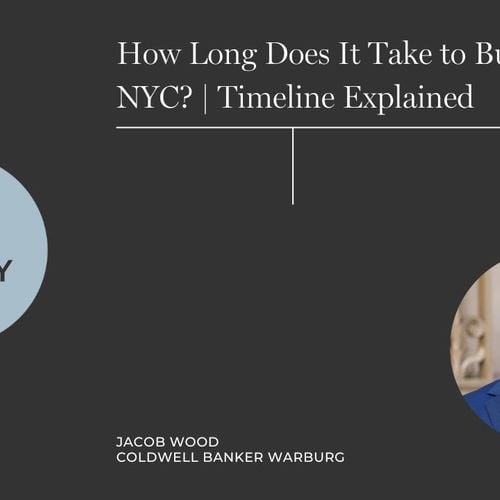From Contract Out to Contract Signed in NYC Real Estate
Now that we’ve negotiated an accepted offer with our buyer, I’ll send a copy of the deal sheet and all due diligence material to the buyer’s attorney, and your attorney will send a first draft of the purchase contract to the buyer’s attorney for their revisions. This breakdown from DuFault Law helps explain how this phase works in NYC and why it matters.
There are a few things we’ve done already that we’ll now reap the benefits of having done ahead of time:
As soon as we decided to sell your home, we requested all due diligence material from your managing agent immediately. This way, even if it took your managing agent a couple weeks to get everything to us—which isn’t uncommon, most managing agents are slow—that delay didn’t jeopardize our contract.
As soon as the home was listed on the market, we chose our real estate attorney from the relatively small circle of attorneys who work exclusively in Manhattan co-op and condo closings. While there is no binder system in NYC and an accepted offer is nothing more than a handshake, there is an emotional closure that both buyer and seller experience as soon as an offer is accepted. If the first draft of the purchase contract goes out immediately, that closure is reinforced. If there’s a multi-day delay in the contract going out while the seller chooses their attorney, that closure is compromised. This is also true if the seller chooses an attorney who doesn’t work exclusively in Manhattan co-op and condo closings. A low-quality real estate attorney gives themselves away immediately, and can be deflating for all other deal parties.Here’s a refresher on why your legal team matters.
Disclose Early, Fix Proactively, and Follow Up Constantly
If there are any exclusions in your sale—such as a chandelier that’s a family heirloom, a bolted-on piece of furniture you plan to resell, or a plant in the backyard—we’ve discussed them ahead of time and ideally have already disclosed them to the buyer. If not, disclosing as soon as an offer is accepted is far better than doing so even a few days later, or—God forbid—at the walk-through. Basically, any slight wrinkle in the transaction should be discussed and disclosed early.
Any appliance or fixture whose status is anything less than “good working order” has been fixed before we listed the home. If not, now is the time to fix it. Dishwashers or washer/dryers that don’t work, windows or doors that don’t open cleanly, electrical outlets that don’t work—we want those fixed by the walk-through. Even items that would likely fall under the contractually protected category of “normal wear and tear” are best proactively addressed. Doing so is always far less expensive than any sort of closing-day disagreement over them and buys us goodwill in the event something unforeseen occurs. Nolo has a great overview of the kinds of last-minute issues that often derail otherwise good deals.
During due diligence, I will check in with your attorney for a status update once per day. It is imperative that the attorneys take a step forward in negotiating the terms of the purchase contract at least once per day until it is ready for your signature. Delays jeopardize contracts, and there is enough potential for delay between the managing agent and buyer’s attorney for any to come from our end.
If you have additional questions about how to get into contract smoothly, please feel free to reach me anytime at my contact info listed below. This is Jacob Wood, your New York City real estate advisor.
Check out this article next

What to Do After You’re In Contract
Let’s discuss what to do once your home is in contract to prep for a seamless closing.As a seller, once we’re in contract, there’s not…
Read Article


